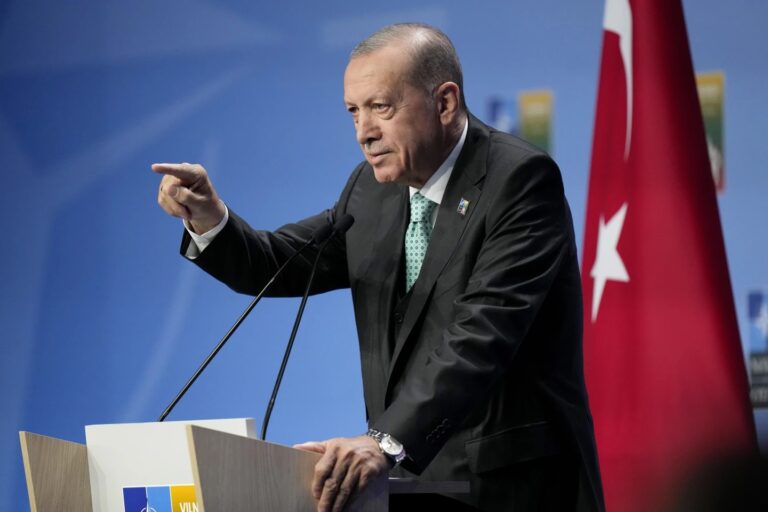 Hillary Rodham Clinton has been in this spot before.
Hillary Rodham Clinton has been in this spot before.
As a senator in 2002, she endorsed military action in Iraq, a decision that came back to haunt her in her failed White House bid six years later.
Now, the former secretary of state and potential 2016 presidential candidate is risking the possibility of similar political fallout in a future campaign with her staunch support of President Barack Obama’s call for a U.S.-led strike in Syria as punishment for the use of chemical weapons.
The two conflicts are different: Iraq was a full-fledged war with ground troops that lasted nearly nine years, while the Obama administration is talking about a limited, focused air attack in Syria. Even so, Clinton’s support of both engagements carries the same potential hazard — that opponents could use her position against her in a future campaign.
“The world will have to deal with this threat as swiftly and comprehensively as possible,” Clinton said Monday in her first public endorsement of the president’s plan to respond to Syria’s chemical weapons use, a year after using her State Department post to press for the U.S. to take a larger role in building support for the Assad government’s opposition.
During a White House forum on animal trafficking, Clinton welcomed suggestions that the Assad regime may surrender its stockpile of chemical weapons, but echoed admonitions from the Obama administration that “this cannot be another excuse for delay and obstruction.”
She’s expected to reiterate her get-tough pitch in a speech Tuesday in Philadelphia, despite American and congressional opposition to engagement.
An Associated Press poll released Monday found that most American opposed even a limited attack — likely with cruise missiles — and about half were fearful that a strike would lead to a long-term U.S. military commitment in Syria. An AP survey of lawmakers indicated Obama still could reach the 60-vote majority in the Senate that will be necessary to advance a resolution authorizing a limited U.S. military strike on Syria. But the House could be a tougher challenge, where there were fewer than a dozen declared lawmakers in support and 150 opposed or leaning that way. About 200 House members have yet to take a public position, more than enough to swing the outcome either way.
Given the unpopularity of Obama’s call for action, Clinton’s entrance into the debate over Syria had implications for his political stature.
Any daylight between the president and Clinton, a former top member of his administration, on Syria would have been significant and would have given wavering Democrats another reason to oppose the military action. But by lending her support to the president, Clinton ended up reinforcing the administration’s message to lawmakers and leaders around the globe about the severity of Syria’s use of chemical weapons and the need for it to carry consequences.
And then there are her own political implications.
As she did with the Iraq vote nearly a dozen years ago, Clinton is betting she will be on the right side of history by standing firm with Obama despite the public opinion polls and a divided Congress.
It was similar to the gamble she made in 2002 when she voted to give President George W. Bush the authorization to use force in Iraq. The resolution passed the Senate with 77 votes, including 29 Democrats, and American public opinion was more supportive of war in Iraq. By the time the 2008 presidential primary came around, support for the war had soured considerably, particularly among core Democratic voters who were heading to polls to choose the party’s nominee.
Obama, who had spoken out in opposition to the war as an Illinois state senator, won the nomination in part by playing up the differences in their positions on the Iraq war, and Clinton found herself opposed by many anti-war Democratic voters in many early voting states.
Clinton’s supporters say this time is different, and they argue that she will be rewarded politically for sticking by the president.
“That shows sometimes leaders have to do the thing that may not currently be the politically popular thing to do but they think is the right thing to do,” said Kathy Sullivan, a former state party chairwoman in New Hampshire who was the co-chair of Clinton’s 2008 campaign in that first-in-the-nation primary state. “At the end of this, people will respect her for her decision.”
Yet Republicans already are calling it a liability. “She is wrapped up in the administration’s bungled Syria policy no matter how she tries to maneuver politically,” said Tim Miller, executive director of America Rising PAC.
Clinton’s backing was not exactly a surprise.
As the nation’s top diplomat, she supported intervening in Syria with a proposal in the summer of 2012 to arm vetted units of the Syrian rebels. The White House later rebuffed those plans. Clinton also pushed attempts in the United Nations to develop a political transition in Syria and provide humanitarian aid to Syrians.
She was expected to reiterate her Syria position in the Philadelphia speech, where she was accepting an award from the National Constitution Center, a group chaired by former Florida Gov. Jeb Bush, an heir to the Bush political dynasty and a potential Republican presidential candidate in 2016.
Earlier this year, Clinton had said she intended to use the speech to discuss her views of national security and privacy. But aides said those plans had to be put on hold given the focus on Syria and the fact that Obama was delivering a White House address two hours later.
(AP)










